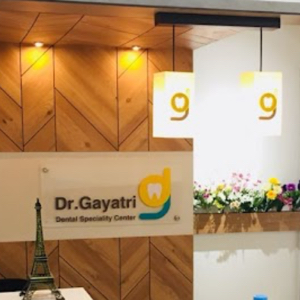+918042757264

This is your website preview.
Currently it only shows your basic business info. Start adding relevant business details such as description, images and products or services to gain your customers attention by using Boost 360 android app / iOS App / web portal.
Description
Dental veneers are thin, custom-made shells that cover the front surface of teeth to improve their appearance. They are a cosmetic dental procedure that can address issues like discoloration, chips, cracks, or slight misalignments. Veneers are typically made of porcelain or composite resin and are bonded to the teeth. What are veneers? Veneers are essentially shells that are bonded to the front of your teeth. They are designed to mask imperfections and enhance the overall look of your smile. They can be made from porcelain or composite resin, with porcelain being more durable and stain-resistant. Types of Veneers: Porcelain Veneers: These are known for their durability, natural appearance, and stain resistance. They typically require some enamel to be removed from the tooth surface for proper bonding. Composite Veneers: These are more affordable than porcelain veneers but may not last as long and can be more prone to staining. No-prep Veneers: Some brands like Lumineers and Vivaneers offer options that require less or no tooth preparation. Why choose veneers? Veneers are a popular choice for those seeking cosmetic enhancements to their smile. They can address: Discoloration: Veneers can mask stains and discoloration that teeth whitening may not fully remove. Chips and Cracks: They can repair minor chips and cracks, restoring a smooth and complete tooth surface. Misalignment and Gaps: Veneers can improve the appearance of slightly misaligned teeth or small gaps between teeth. Uneven Tooth Wear: They can restore the size and shape of teeth worn down by grinding or other factors. Veneers vs. Crowns: While both veneers and crowns are used to improve the appearance of teeth, they differ in their coverage. Veneers only cover the front surface of the tooth, while crowns cover the entire tooth. Veneers are generally a more conservative approach, requiring less tooth reduction than crowns. Veneers Procedure: 1. Consultation: The dentist will assess your teeth and discuss your goals to determine if veneers are the right option. 2. Tooth Preparation: A small amount of enamel is removed from the front of the tooth to create space for the veneer and ensure proper bonding. 3. Impression: An impression of your teeth is taken to create custom-made veneers. 4. Temporary Veneers: Temporary veneers may be placed while the permanent veneers are being fabricated. 5. Bonding: The permanent veneers are bonded to the teeth using a strong dental adhesive. Cost: The cost of veneers varies depending on the material used (porcelain or composite), the number of veneers needed, and the dentist's fees. Porcelain veneers are generally more expensive than composite veneers.

